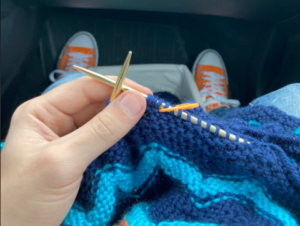
Are you buying a property and worried you’ll be gazumped? Is there anything you can do to avoid it? Do you even really know what it means? Read on to find out.

What Does It Mean to Be Gazumped?
Many of us have heard the term ‘gazumping’ before, but you may not really know what it means unless it has happened to you. Each year in England, between 25 and 30 per cent of all house sales fall through at some point between a buyer having an offer accepted and the sale completing. Not all sales fall through as a result of gazumping. To be gazumped is to make an offer on a property, have it accepted by the seller and then to lose the property, usually to a higher bidder. The government is trialling ‘reservation agreements’, where the party pulling out of the sale would stand to lose a deposit unless they had an exceptional reason for doing so.
Until the law changes however, gazumping remains a big concern for homebuyers.
Why Do Sellers Gazump Buyers?
Some sellers do have valid reasons for pulling out of a sale. Life is full of unexpected changes.
However, gazumping mostly refers to unscrupulous sellers who accept a higher offer for their property even though they have agreed to take it off the market by accepting an offer. Some vendors do this because they receive an offer from a cash buyer, a buyer without a chain, a buyer who is in a position to proceed more quickly, perhaps through online conveyancing, or simply someone who has offered a higher price. Some even speculatively cancel the sale of the property because they think prices have risen and they can get more money by putting their property back on the market.

If you want to protect your hard-earned money, it is possible to buy homebuyer’s insurance, which offers some protection against losing the money you have spent pursuing the home purchase, such as engaging a solicitor and paying a surveyor.
How to Avoid Being Gazumped
Ultimately, all buyers would like to avoid being gazumped. Here are our six top suggestions to make it less likely.
1) Have your funds arranged ahead of making an offer. Put yourself in the best possible position to appeal to the seller of your dream home by having your mortgage in place (agreed in principle) or your funds in your account before you even set foot over the threshold for your first viewing. This will signal to the vendor that you mean business and will not turn out to be a time waster and that accepting your offer will result in a straightforward sale.
2) Ask the seller to remove the ‘for sale’ board and stop marketing the property when they accept your offer. Although you can’t really enforce this, you are well within your rights to ask, and most sellers and estate agents will agree.
3) Get your seller to sign a ‘lockout agreement’, formally agreeing that they will complete the sale and not accept offers from others. This will cost you some money, but if you have your heart totally set on this one property, you might consider it worth your while.
4) Stay in close contact with your seller throughout the process to make sure any issues are resolved as quickly as possible. Building a good rapport with your seller, without contacting them so often they begin to feel harassed, makes it more likely they will honour their agreement.
5) Use online conveyancing. You’ll find that online conveyancing can ensure your sale goes as smoothly and quickly as possible. Using a web-based conveyancing service makes the process transparent, so you can keep tabs on all the important milestones in the process. This can dramatically reduce the time taken to complete the legal work involved in moving home and give your seller far less time to think about looking elsewhere for offers.
6) If all else fails, consider increasing your offer. This is a last-ditch strategy, and some may be so upset that their vendor has gazumped them that they no longer want to buy from them at all. However, if this is the only property you want to buy, and you can afford to pay more, it’s always an option.
Gazumping is unfair and can be a miserable experience. Hopefully, a change in the law to protect home buyers will happen very soon in the rest of the United Kingdom.







